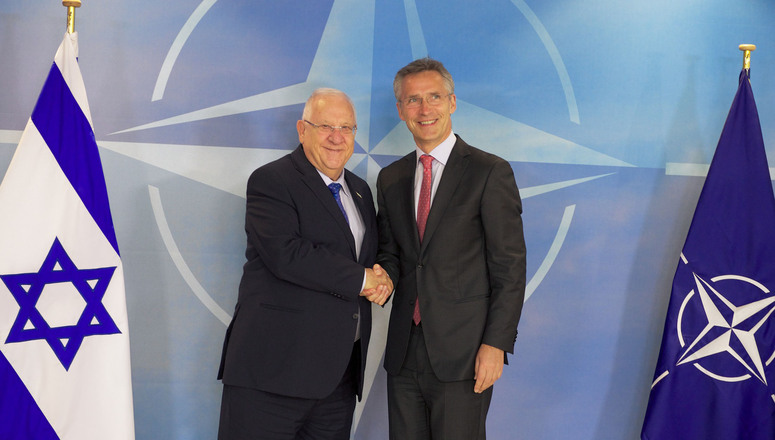FRESH AIR
Israeli counter-terror expertise currently in demand
June 14, 2017 | Shmuel Levin

Shmuel Levin
Following the recent spate of terrorist attacks in Europe, including in Manchester and London, and other recent attacks in Paris, Stockholm and Berlin, Israeli counter-terrorism expertise appears to be in unprecedented demand.
As reported by the UK’s Jewish News:
London Mayor Sadiq Khan has sought advice from Israel about how to better combat the urban terrorism of the Manchester and London Bridge attacks.
In an exclusive interview with Jewish News after addressing more than 1,000 guests at Jewish Care’s annual dinner, Khan revealed that both his office and Met Police assistant commissioner Mark Rowley, the head of national counter-terrorism policing, have been in touch with officials in Israel.
“My office has been in contact with not only Tel Aviv but other places as well,” he said.
Mayor Khan said he and his colleagues had learned “lots of things, things like putting in place the barriers we have done in London. There are other things and we are using the advice we receive.”
“Just like the terrorists evolve, we have to find new ways to protect ourselves,” he added.
He said police visit Israel and are in regular touch with their contacts.
This is part of a larger trend. The growing spectre of terrorism in Europe, especially by individual actors, often using vehicles as weapons, is feeding an increased desire for Israeli counter-terrorism expertise across NATO.
Israel previously developed a strong relationship with NATO following 9/11 and, like Australia, Israel maintains partnership status in NATO. However, in recent years, this relationship stagnated after a fallout between Israel and Turkey.
But the recent combination of restored ties between Israel and Turkey, and an increase of terrorist attacks in Europe, has seen the relationship grow once more. In this regard, NATO is seeking to find “practical ways to transfer the accumulated knowledge of the Israeli army and intelligence community in dealing with terror.”
Israeli counter-terrorism experts have been developing tools to predict attacks that occur outside of organised terrorist groups and to spot imminent attacks by self-radicalised individuals or small groups.
One example is the development of algorithms that monitor social-media accounts to look for early warning signs, such as terms associated with the writings of past attackers. Israel also monitors the activity of relatives, friends, classmates and co-workers of recent terrorists. Other studies have looked at the “specific psychological event or state” that precipitates terror attacks.
Israel, NATO, and Europe
The result of this has been a number of recent developments in the Israel-NATO relationship. As reported by Ha’aretz:
NATO Secretary General Jens Stoltenberg announced the opening of an Israeli office at NATO headquarters in Brussels. Although not yet fully functional, the office is now being run by Foreign Ministry employees stationed at the Israeli headquarters for the European Union and NATO. Additionally, the transfer of IDF attaché in Holland, Col. Arik Chen, from The Hague to Brussels is under consideration.
Not all NATO members have close security ties with Israel outside the alliance. But recently, Israel’s defence establishment has noted increasing interest in cooperation with the IDF in building the strength of the alliance in the areas of counter-terrorism (which NATO has yet to define as a core task), defending borders and security on the home front.
There is also a move toward renewing participation of Israel in NATO operations. Specifically, 2018 is expected to see a renewal of Israel Navy craft participation in NATO patrols against terror and the smuggling of war materiel in the Mediterranean (Sea Guardian) – which were frozen due to the tension with Turkey.
In addition, NATO Secretary General Jens Stoltenberg of Norway is expected to visit Israel in the coming months and to meet with the Prime Minister, the Defence Minister and the Israel Defence Forces Chief of Staff. This follows previous visits to Israel by NATO’s Supreme Allied Commander for Europe, Gen. Curtis Scaparrotti and other high-ranking NATO officers including the chairman of the NATO Military Committee, the Czech General Petr Pavel.
A growing sensitivity towards incitement
As previously reported by AIJAC, recent months have also seen a new understanding from European countries about the effects of Palestinian incitement toward terrorism against Israel.
This has included moves by both Norway and Denmark to pull funding – and even demand a return on funds – from projects that have been tainted by Palestinian incitement and glorification of terrorists.
In an additional move, on 13 June, the Swiss Council of State gave final approval to a bill to “amend the laws, ordinances and regulations so that Switzerland can no longer subsidize, even indirectly, development cooperation projects carried out by NGOs involved in racist, anti-Semitic or hate incitement actions, or in BDS (Boycott, Divestment and Sanctions) campaigns.” The bill was first proposed in March and approved by the lower house of the Swiss Parliament (111 to 78 with 4 abstentions).
Arguably, these European moves to address the long-standing problem of Palestinian incitement can be seen as part of a growing appreciation for Israeli counter-terror challenges and the lessons that Israeli security forces have learned from them.
Israel has much to share from its long history of countering terrorism – including the importance of the containing and countering incitement to terrorist violence. Now, it appears that the rest of the world may be starting to listen.
Image source: NATO
Tags: Israel
RELATED ARTICLES

US Middle East strategy amid regional instability: Dana Stroul at the Sydney Institute

Antisemitism in Australia after the Bondi Massacre: Arsen Ostrovsky at the Sydney Institute





















